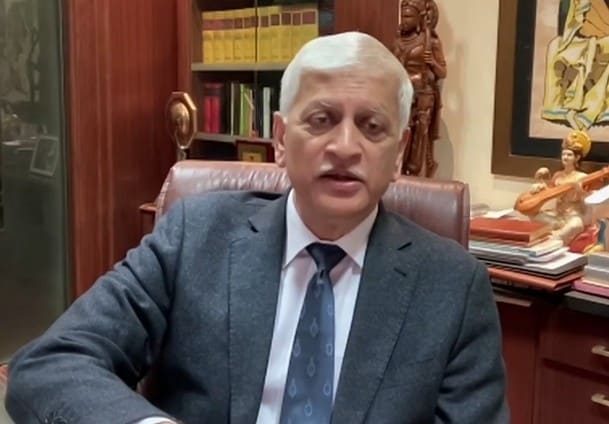Former Chief Justice of India UU Lalit has said the planned debate on the Constitution in parliament “certainly has good features about it”. In an interview to NDTV, Chief Justice Lalit said every now and then, it is good to take stock of constitutional aspirations, goals and what exactly we have been able to achieve till now, and that “there can’t be anything better than that.”
“The parliamentarians quite periodically keep on taking stock of situations as to where exactly do we stand, how far have we come, whether there are any provisions which require any amendment or whether any amendments which had been effected up till now, whether those amendments need any kind of fresh reading. So therefore, this kind of introspection is something which is always welcome,” Chief Justice Lalit told NDTV. “So if the parliamentarians wish to do that kind of introspection on the achievements on the constitutional front, then it is a very, very welcome idea.”
To a question about how India’s Constitution has fared so far, Chief Justice Lali said it has “fared very, very well.”
“Of course, the judicial interpretation also helped us. In the initial case, the first case, which was AK Gopalan, one of the arguments which were advanced on behalf of the petitioner was that when you consider and interpret the expression except in accordance with procedure established by law in Article 21, do you simply go by the procedure as stated in the law? Or would it be also open to see whether that procedure is fair or not? That is to say, read quote unquote ‘expression’ due process in that particular Article,” Chief Justice Lalit said.
“It took us some time for the Supreme Court to accept that and in Maneka Gandhi, we came up with what is called the expanded definition of right to life. It is that expanded definition of right to life, which was responsible for our reading of a typical right flowing from Article 21. That is to say that every child in this country in the age group of 6 to 14 will have a fundamental right to be educated and to be imparted free, compulsory and good quality education,” the former Chief Justice of the Supreme Court told NDTV.
“This is something which the Supreme Court stated in 1993. So, therefore, in about nine years time, the parliament came out with an amendment and Article 21 capital A got inserted. So, these kinds of developments always augur very well that change is something which we always aspire for, change for the betterment, change for the better lives of people.
“So, therefore, if you study the Constitution, we have lost one fundamental right, which is the right to property. But we gained one fundamental right, which is the right of every child in this country to have free and compulsory education. Have we really lost on account of that right to property not being in Part 3? Nothing much.
“It has not changed the spectrum so far as the entire population or the general people are concerned. But right to life getting inserted in Part 3, it definitely has had a tremendous dimension so far as the development of this country is concerned, giving substance to everybody’s life,” Chief Justice Lalit said.
He said at least two generations of students have passed out with the help of that kind of facility afforded by that right.
“So, we are definitely moving towards betterment, moving towards good ideas getting inserted in the Constitution, some of the fabulous ideas getting incorporated through interpretative process and even now amendments as well. Now, the last amendment, which is the 106th amendment, gives women one third of the seats in Lok Sabha and in every state legislature,” Chief Justice Lalit said, adding we are moving towards what are called inclusive ideas on every front.
He said if you actually look at the substantive amendments to the Constitution, there are very few.
“We have come up to level of 106 amendments. Four new areas got included in the Union like Dadra Nagar Haveli, Pondicherry, Gyanam Karaikal, then Goa, Daman and Diu and finally Sikkim. So, therefore, some of these amendments are more or less, you know, the procedural part, nothing substantive.
“Substantive amendments, if you put your fingers on, there may be just about seven to eight substantive amendments. So, therefore, otherwise every amendment has, there have been results as a perhaps, I think, response towards some of the judgments given by the Supreme Court. Say, for instance, Indira Sani said that no reservation in promotion, there was one amendment was required.
“Then there was a lot of debate whether it is consequential seniority or the original seniority. So, therefore, one more amendment came into effect. Then another amendment whether backlog vacancies can be filled in or not.
“So, therefore, these are some of the amendments which have been actually effected basically to refine the process. Some of the rough edges which were there in the process have been now sort of smoothened and the process becomes completely easy. So, yes, there have been amendments,” Chief Justice Lalit told NDTV.
